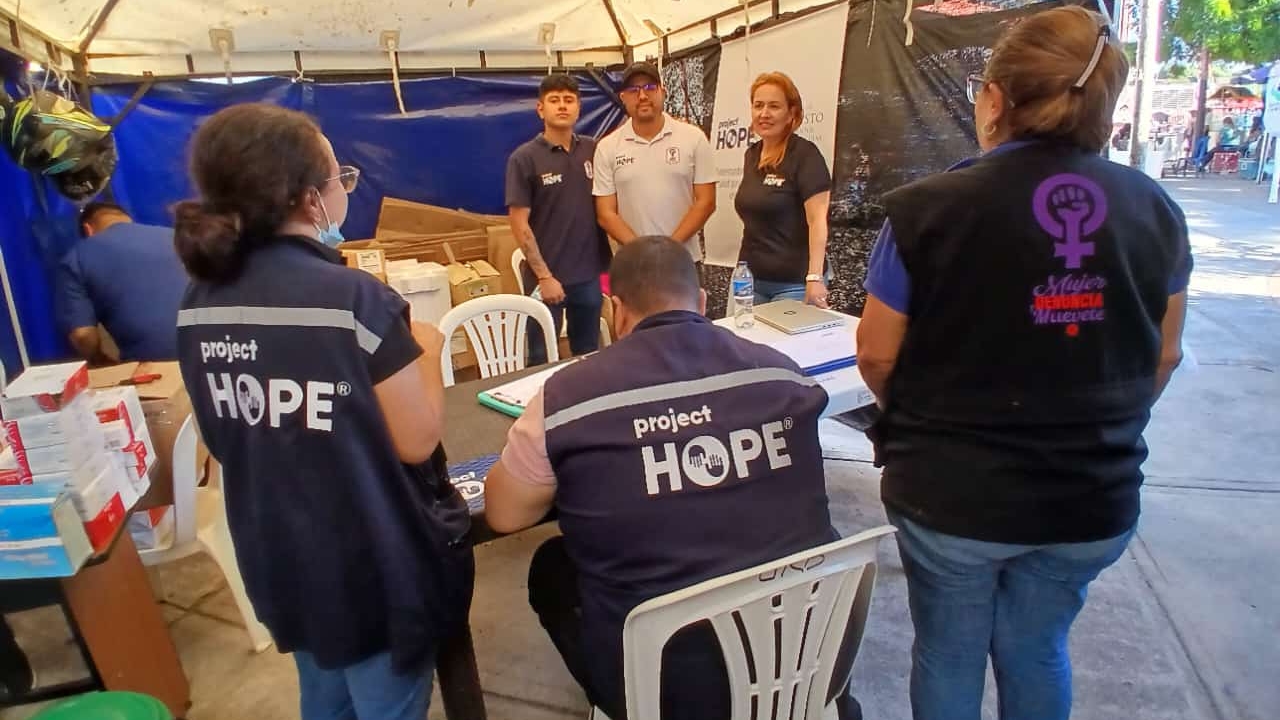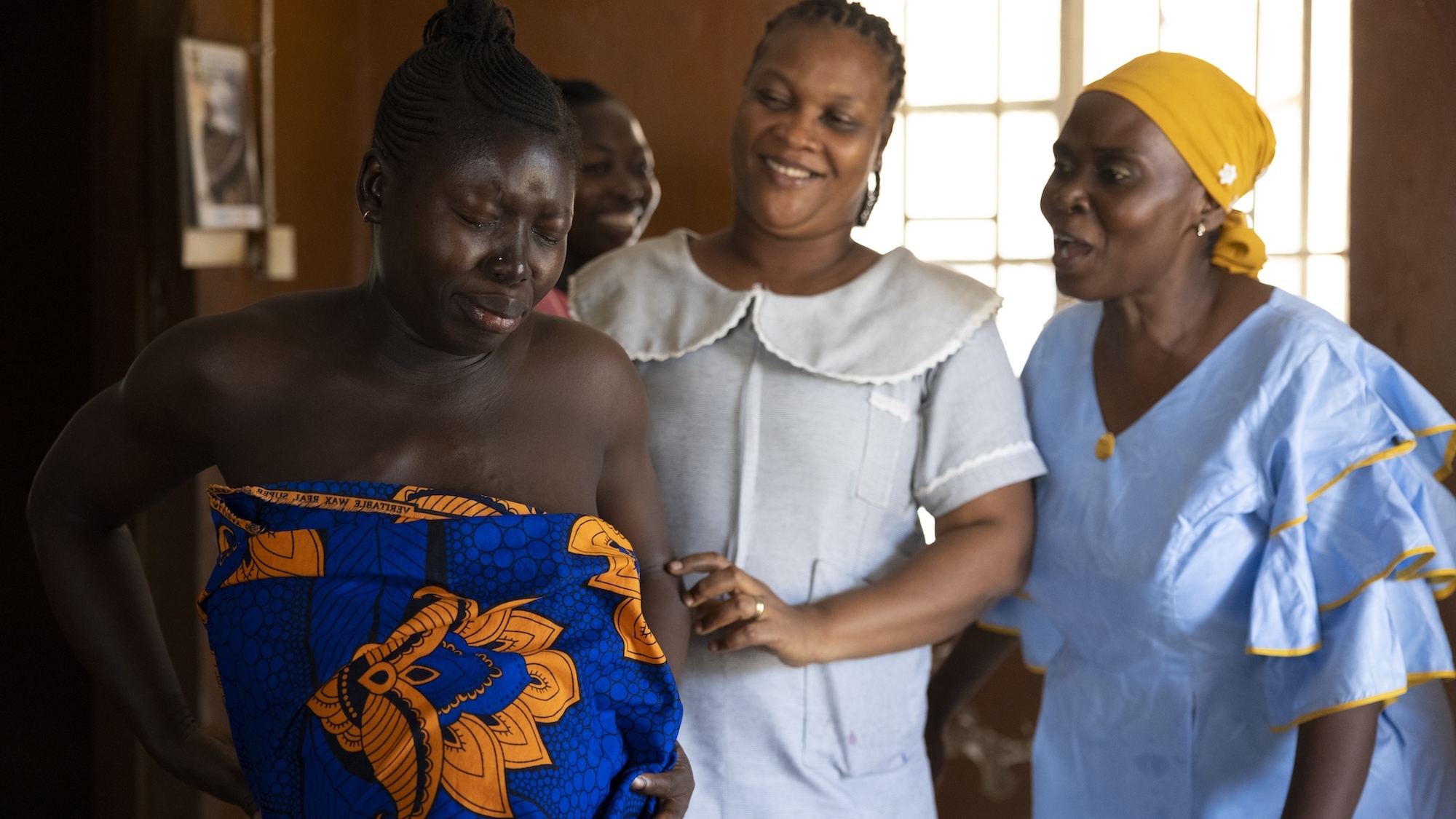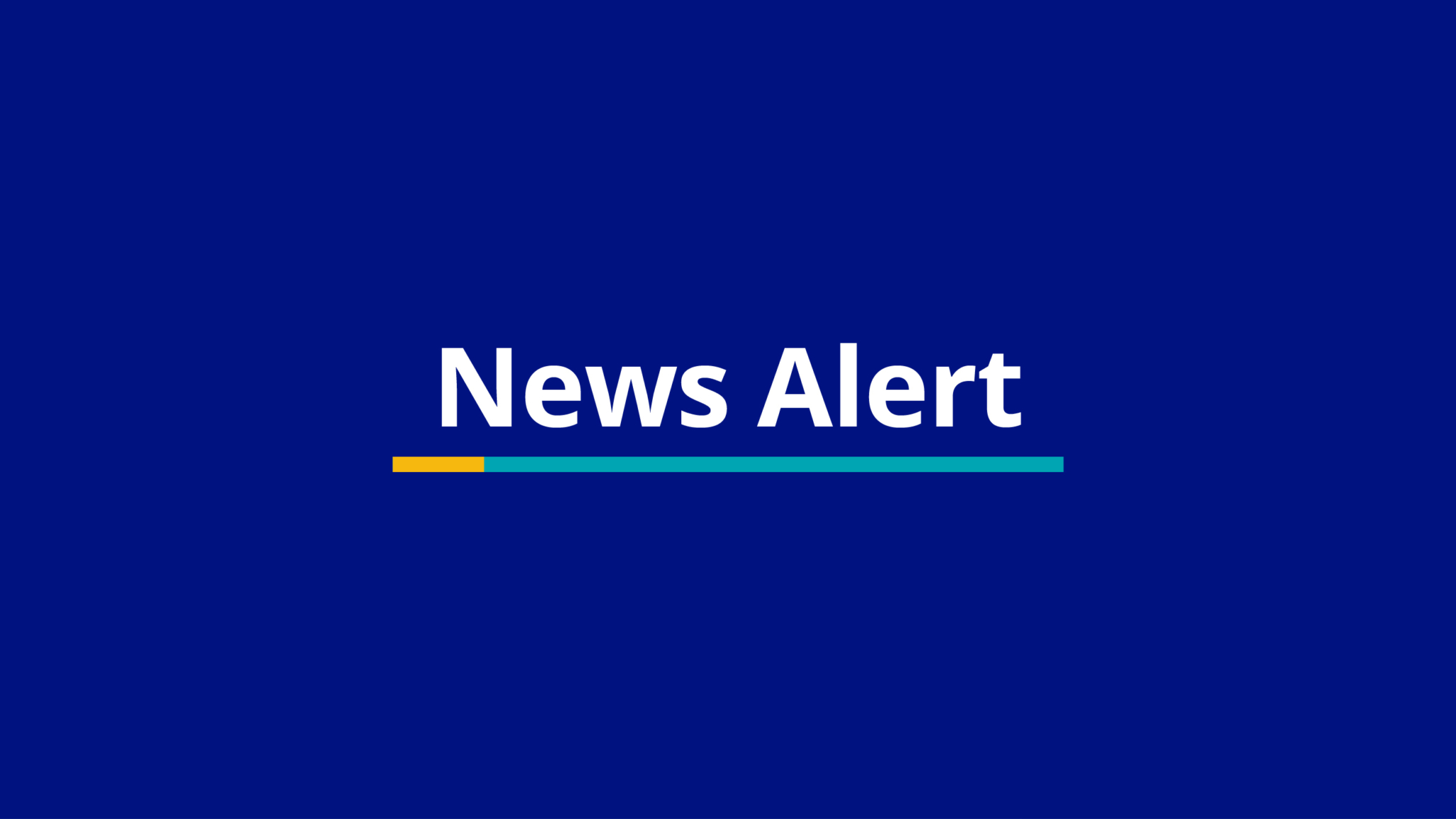What Do Health Inequities Look Like Around the World?
Health inequities can look wildly different depending on where you live — from the presence of oxygen in an ambulance to the depiction of women on TV. Here are some of the inequities Project HOPE team members see in their communities around the world.
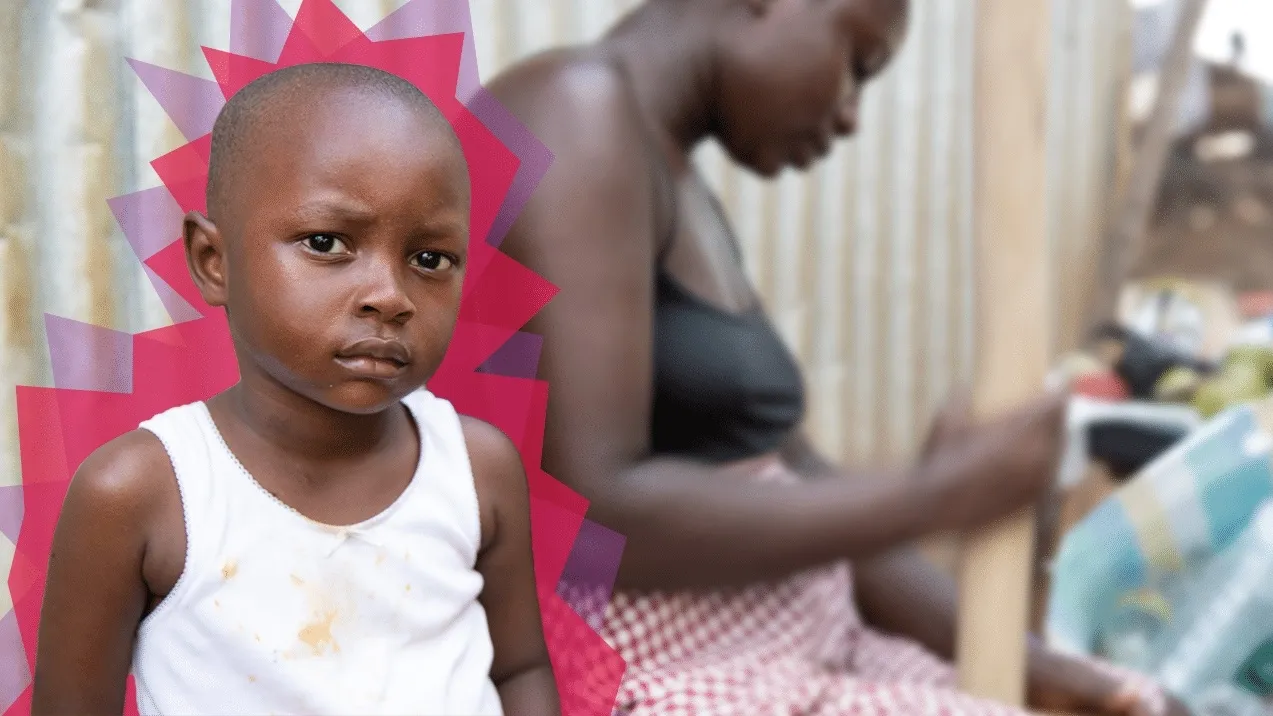
In many cases, what health inequity looks like depends on where you live. In some places, inequity might look like a lack of personal protective equipment in a clinic. In others, it might be entrenched poverty that prevents people from seeking care. In others, it might be a lack of education, or food insecurity, or gender disparities that withhold opportunities from girls and women.
Project HOPE team members work around the world to build healthier, more equitable communities where everyone can access the health care they need. We asked a few to share what health equity means to them, what inequities look like in their community, and what must be done to achieve health equity for all.
Adeola Seweje-Chimunda, Program Officer
Region: Nigeria
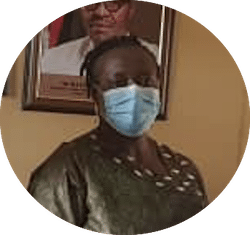
What does health equity mean to you?
Health equity means that health is accessible to all irrespective of gender, color, tribe, and religion. This means that everyone has access to health services at whatever level they are. It means the government commits to providing affordable health services (including human resources and materials like roads). It also means that individuals know what is available and how it can meet their needs.
What does inequity look like where you live?
In Nigeria, equity is not the same as in other places. One example is how adolescent girls may not be able to access the same opportunities as boys. For example, it may not be possible for a young girl to access condoms easily without the community raising issues, but for a boy it is considered right and he is encouraged to protect himself. We have advertisements that show only female models cooking food while the man just sits down to eat the food without giving any assistance.
What needs to be done to achieve health equity?
We need more awareness on what gender issues are. There is a disconnect, even at high levels of education, that when we talk about gender issues, it automatically refers to women. There should be awareness and more programming on how gender issues also relate to boys and men.
Diana Ohanian, Liaison/Program Manager
Region: Beirut, Mount Lebanon, North Lebanon
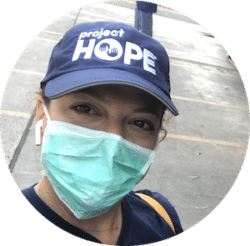
What does health equity mean to you?
Health equity is when everyone has the privilege to access any health services at any time, which eventually makes the entire community a healthier place.
What does inequity look like where you live?
Even though Lebanon is known for having one of the best health services and some of the leading medical personnel in the region, the country has over 1.5 million Syrian refugees, thousands of Palestinians, and untold numbers of migrants, and the majority lack access to proper health care. There are several reasons why, including their legal status and the high cost of services.
On top of this, the health burden from the Port of Beirut blast led to thousands of clinics and hospitals in Beirut and Mount Lebanon becoming partially or totally damaged. Also, due to the financial deterioration of the country and COVID-19, many adolescent girls and boys dropped out of school in order to support their families and sometimes even provide an education to their younger siblings.
The health industry is suffering the most. More than 500,000 people have contracted COVID-19, including hundreds of health care providers. ICUs were at full capacity, leading many COVID patients to be kept in hospital emergency rooms since there were no vacant rooms. Due to this, the country was in total lockdown in order to let hospitals prepare more ICU rooms and accept more patients.
I heard a story recently about two siblings who went to school — the older child’s teacher noticed that the girl didn’t have anything to eat for the day and asked her, “Where is your sandwich?” The girl’s reply was that today was her brother’s turn to have a sandwich, and that the day before was her turn. Many children of Lebanon are going to bed hungry, and parents are not able to afford or find bread for their children.
Due to these issues, estimates are that more than 55% of the country’s population is now trapped in poverty and struggling for basic necessities. This is almost double last year’s rate, which was 28%. Extreme poverty has registered a threefold increase, from 8% in 2019 to 23% in 2020.
What needs to be done to achieve health equity?
Due to the financial crisis in Lebanon and the 85% inflation rate, children under 5 are not able to receive their basic needs like milk, diapers, and medication. Lebanon reached a very crucial point with regards to poverty, access to health services, and displacement due to the Port of Beirut blast in August 2020.
Lebanon needs help. It needs support for all underprivileged people to have access to health care and to be able to meet their most basic needs. Everyone needs access to their basic human rights to live in dignity.
Ever since I was born, every few years I’ve been in a “warlike” situation. I was born at the end of the Lebanese war and experienced years of bombings, the assassination of the former Prime Minister which led to several chains of assassinations, the 2006 July War, the Syrian war, the Lebanese revolution, COVID-19, the financial crisis, the dollar-to-Lebanese-lira inflation rate, and more.
Lebanese people are suffering. Every household needs at least mental health and psychosocial support. Every family needs health services, every family needs to be able to meet their basic human needs, every child has the right to an education, and every woman and girl has the right to health care. Lebanon needs your help. Lebanese people deserve to live in peace and dignity.
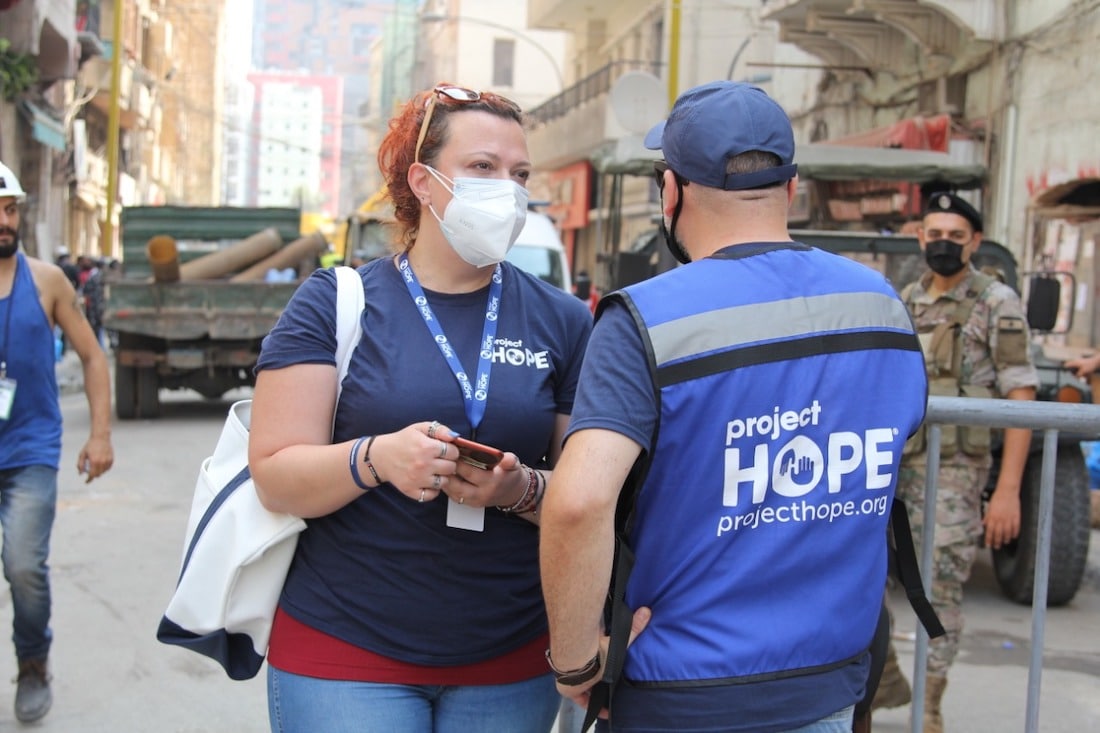
Marco Antonio Suazo, Consultant
Region: Central América
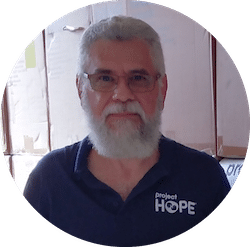
What does health equity mean to you?
Health equity is the right that everyone has to a full life, paying due attention to the role of health in the life and freedom of a human being. It means that social, economic, or biological differences do not influence access to health. This is one of the most important conditions of human life: to achieve a healthy life, without diseases, preventable suffering, or premature mortality.
What does inequity look like where you live?
In my country there is no equity. The poor suffer from more poverty and the rich accumulate more wealth. Inequity affects people’s access to decent and universal services in health care, education, employment, housing, and more.
What needs to be done to achieve health equity?
We must prioritize the needs of the population by investing the national budget appropriately and not for agendas with political ends.
Barbara L. Smith, MPH, CPDM, Senior Program Officer
Region: China, Middle East, Americas
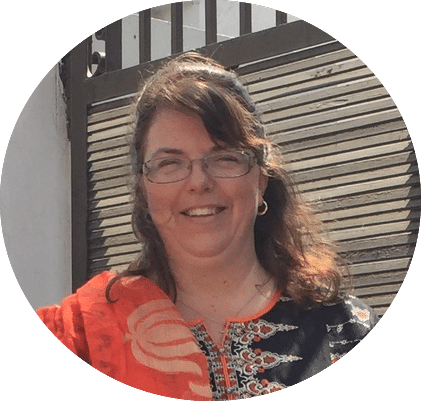
What does health equity mean to you?
Health equity means that all people of all races, religions, socio-demographic and educational levels have equal access to all areas of health care, including care and treatment for chronic disease.
What does inequity look like where you live?
Young women who are single mothers have to choose abject poverty in order to receive assistance for health care, whether for basic or advanced health care needs. If they earn a decent living but have little extra beyond their daily needs, they are ineligible and have no option to receive good health care, especially if they have chronic disease.
What needs to be done to achieve health equity?
I would say a universal health care plan, but even if health care providers were willing to offer discounted rates based on income levels, it would be a start. Especially if this were available from specialists.
Yogi Mahendra, Emergency Response Specialist
Region: Southeast Asia
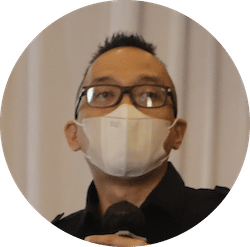
What does health equity mean to you?
Health equity is one of the main objectives of our team when we conduct emergency response operations. The team will make every effort with its resources and capabilities to ensure that survivors have equal rights to access health care services. Because of natural disasters, the situation will be more complicated than normal humanitarian operations due to damage to existing infrastructure and health systems.
What does inequity look like where you live?
Issues of health inequity often affect those who are poor. For example, sometimes those who are on social security can experience difficulties in accessing health facilities, including hospitalizations during the COVID-19 pandemic.
What needs to be done to achieve health equity?
This requires a very, very long process, especially cooperation between all sectors, both government and private.
Equity is an indicator that is very difficult to pin down, because everyone, both personally and professionally, has their own views about a form of equality. But that does not mean that we cannot find middle ground and points of agreement, as long as everyone thinks about it through the perspective of the wider community’s needs — especially the marginalized and vulnerable.
Emilija Dukovski, Development Finance Manager, Project Manager, Member of the Emergency Response Team
Region: North Macedonia
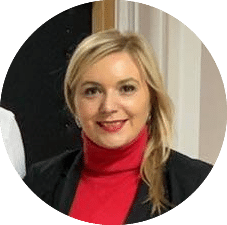
What does health equity mean to you?
For me, health equity means that every single person in my country has the same fair and equal right to be healthy. This shouldn’t depend on where she or he lives, on their level of education, or on their nationality, religion, or gender. It means that I shouldn’t be privileged that I was born in the capital and that’s why I have a better quality of life and better health care than someone born just 50 kilometers away.
What does inequity look like where you live?
An example from our work in Macedonia would be the Neonatal Project, PeriMac. We are currently working with the Ministry of Health to organize neonatal transport on a country level. This service doesn’t exist now. Since we started the project back in 2016, we have seen babies transported from other cities to tertiary care in Skopje (at the only NICU in the country that accepts patients from the whole country), wrapped only in a blanket. For a premature baby, this is unacceptable and the chances of survival are low, as same as the chances of surviving without permanent consequences.
There was a case of a baby that was transported from Kumanovo to Skopje (just over 50 kilometers), but due to the lack of oxygen in the regular ambulance vehicle the baby got asphyxia. She survived, but she will never have a normal quality of life. And this is only one example where the place where you are born affects your life and the right to health care. That is why with this project, we will not only donate the vehicles and equipment, but we will also help to establish a referral system and train the doctors and nurses in each of the primary and secondary care hospitals around the country on how to stabilize and keep the baby in the best possible condition to be transported to tertiary care. With this, we believe we will even out the inequalities and give every baby the same chance of survival, no matter where it is born.
What needs to be done to achieve health equity?
We need to continue to work with the leaders of the country, in our case with the Ministry of Health, in order to bring us to equal and fair distribution of health care through the country regardless of social status, education, race, religion, or location. We are a small organization but we continue to have a great impact and be a driving force for the changes.
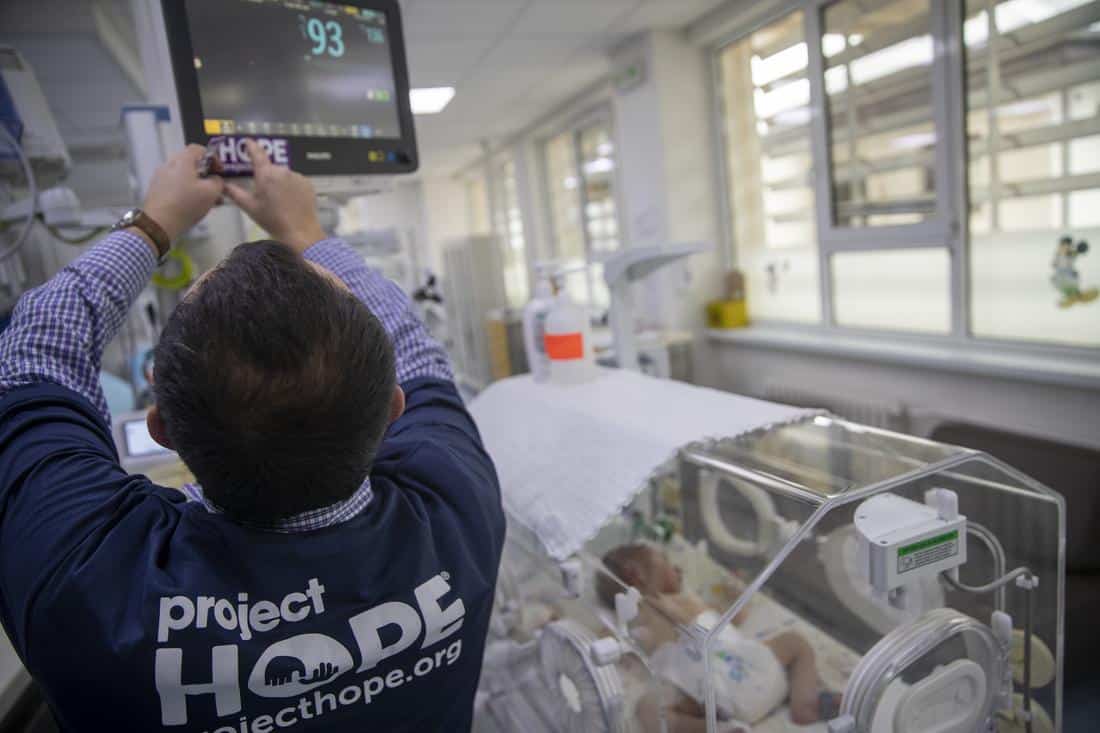
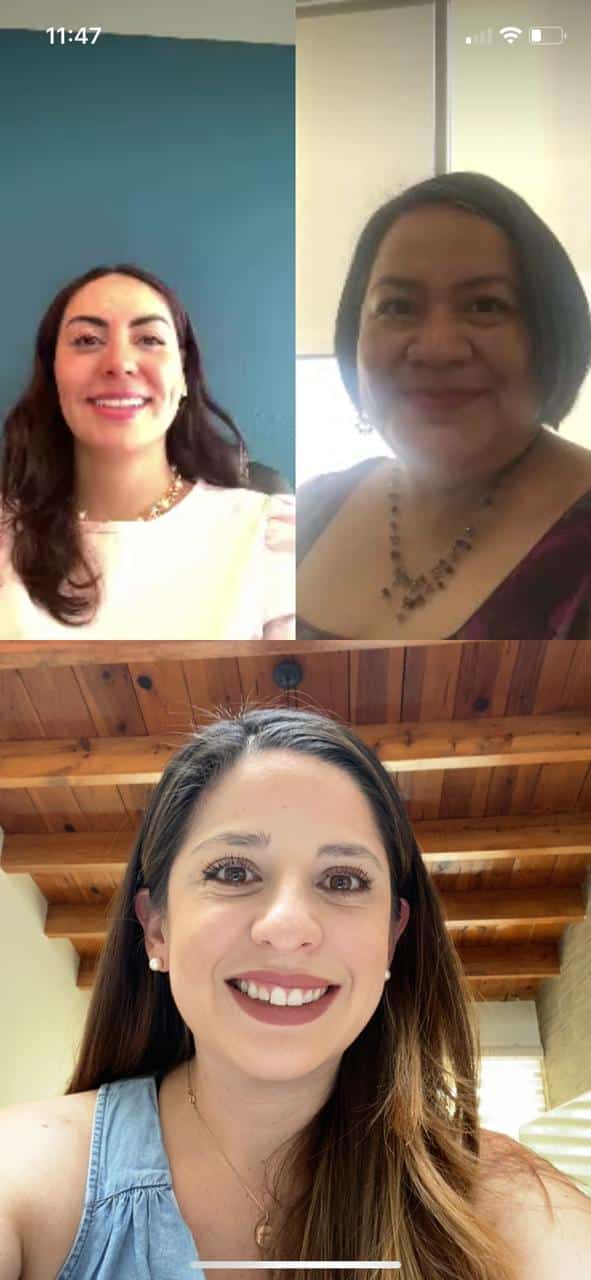
Fernanda Melendez, Finance and Administration Manager
Region: Mexico
What does health equity mean to you?
For me it means everyone having access to the basics to keep a healthy life: food, clean water, a safe roof, and access to a doctor and medicines.
What does inequity look like where you live?
Where I live the differences are very obvious. If you are privileged, you have access to a private education, private health care, and your basic needs are covered. But the person next door might not be so lucky. They might have to start working at an early age and not be able to finish school. Or if they get sick, they will have to attend a public health facility, which in our country lacks a lot.
Where I live, it still matters if you are a man or a woman aspiring for a job: the decision is not made based on capabilities but on gender. Where I live men like to talk and explain to men, because in their little minds women do not have the capability to understand about a broken faucet or a flat tire. Where I live the privileged people are a minority.
What needs to be done to achieve health equity?
I believe the key to health equity and any other equity begins with education. Yes, education starts at home, but an excellent school system would be a great solution. Since that is not in our hands, I believe the privileged people with access to food and clean water, aside from being grateful, need to be careful with what they have and in any way possible give a little bit back to the underprivileged. This can be done by donating time, food, medical supplies, or anything else that can put a smile on someone else’s face. (Which, if you try, is not that hard!)
Yarishdy Mora, Senior Program Manager
Region: Mexico
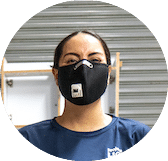
What does health equity mean to you?
To me, equity is corrective justice, an effort to recognize and make reparations for the disparities that have disproportionately affected the already disadvantaged communities around us. It means eliminating the structural barriers to health so that everyone can benefit from equal opportunities. Furthermore, it requires understanding these disparities, adopting practices tailored specifically for the communities we work with, and providing resources to make up for the deeply rooted inequalities that have a strain on the health and well-being of our people.
What does inequity look like where you live?
In Mexico, a country where noncommunicable diseases account for over 80% of the total deaths, inequalities in access to care, education, and healthy foods have a tremendous impact on the health of our youth. And today, in the midst of a pandemic, these factors are more crucial than ever, as they have been proven to determine the severity of health conditions resulting from COVID-19. Therefore, our fight for health equity in Mexico should continue to prioritize increased access to preventive care and affordable healthy foods, while also promoting policies that address the multiple components that are conducive to the current obesogenic environment across the country.
What needs to be done to achieve health equity?
Advancing health equity in relation to NCD prevention might seem like a Herculean task, however it is imperative that we continue to educate our young leaders as they will become the foundation for systemic change across the country. At a higher level, collaborative partnerships among civil society and the public and private sectors are pivotal. These partnerships need to take responsibility for implementing substantial and sustainable policy reform that addresses the commercial determinants of health that have permeated the culture in the region and continue to negatively impact the health of the most disadvantaged.
The Young Health Program in Mexico is committed to the fight for health equity in our nation and we continue to strive for the creation of equal opportunities for all. Through our multidisciplinary approaches, we have helped achieve improvement of the health outcomes of historically underserved groups.

